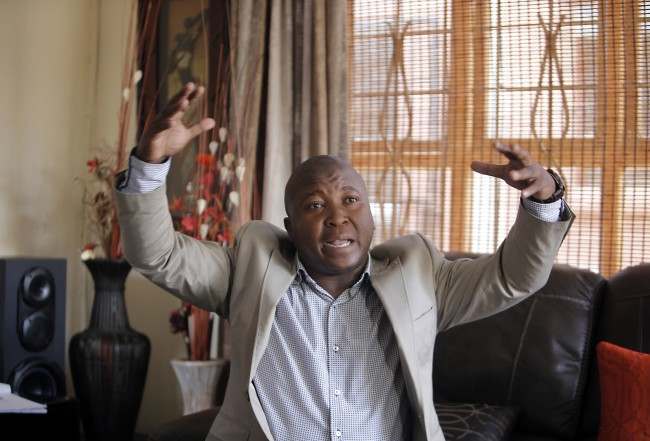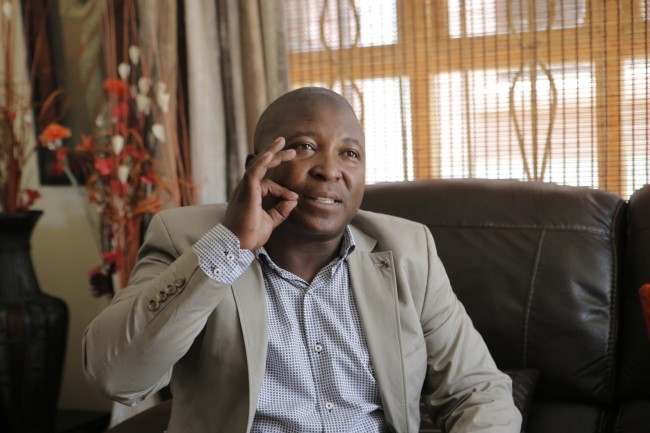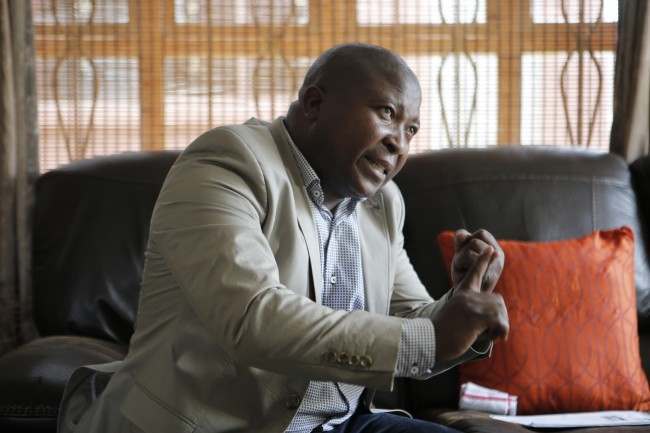Was Nelson Mandela Sign Language Man Thamsanqa Jantjie Talking To You?

WHEN Nelson Mandel died, he did so when the news cycle had moved on. No longer were hundreds of journalists waiting outside his home for him to die so that they be the first to lower that voices and paid tribute to ‘Madiba‘ the Magical Negro. He also caught the Mandela Memorial even organisers on the hop so much so that they booked Thamsanqa Jantjie (aka Thamsanqa Dyantyi) provide a running commentary for the deaf. Jantjie became a laughing stock for his signing that hinted at a misspent youth watching silent comedies.

And then he spoke. He said he had been suffering a schizophrenic episode:
“There was nothing I could do. I was alone in a very dangerous situation. I tried to control myself and not show the world what was going on. I am very sorry, it’s the situation I found myself in. Life is unfair. This illness is unfair. Anyone who doesn’t understand this illness will think that I’m just making this up.”

People can so unfair.
“I won’t like to discuss my medical status on the media because it will harm my children otherwise. I’m a patient receiving treatment in a schizophrenic [ward].”
And then adding, a bit oddly:
“It’s very sad at this present moment because I believe it was an issue that had to be dealt with earlier. If Deaf SA South Africa have a query against my interpreting it was supposed to be put in clarity a long time ago, not at this crucial time for our country. If I was interpreting not right, why it was not been picked up by that time? You must remember, you’re talking about an interpreter that has been interpreting throughout these years. If I was interpreting wrong throughout these years, why should it become an issue now?”

It would seem that Mr Jantjie did well to keep any kind of composure under such intense scrutiny and suffering from a horrible condition.
He was on the radio:

The NHS says:
Doctors often describe schizophrenia as a psychotic illness. This means sometimes a person may not be able to distinguish their own thoughts and ideas from reality.
Like a BBC reporter?
Some people develop a delusional idea to explain a hallucination they are having. For example, if they have heard voices describing their actions, they may have a delusion that someone is monitoring their actions. Someone experiencing a paranoid delusion may believe they are being harassed or persecuted…
Some people who experience delusions find different meanings in everyday events or occurrences. They may believe people on TV or in newspaper articles are communicating messages to them alone…
It is like being a BBC reporter…LIVE at the funeral.
Posted: 12th, December 2013 | In: Reviews 3 Comments | TrackBack | Permalink


